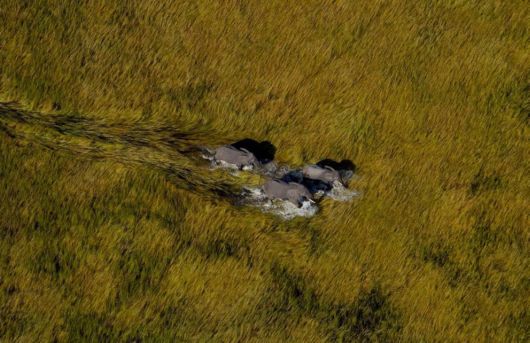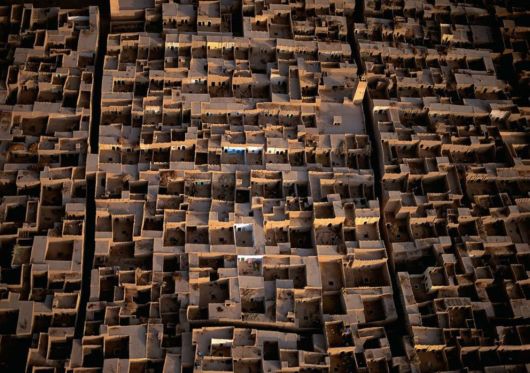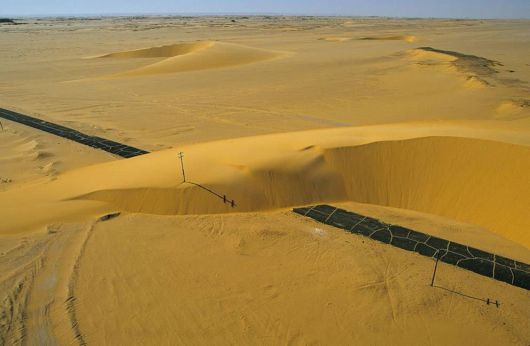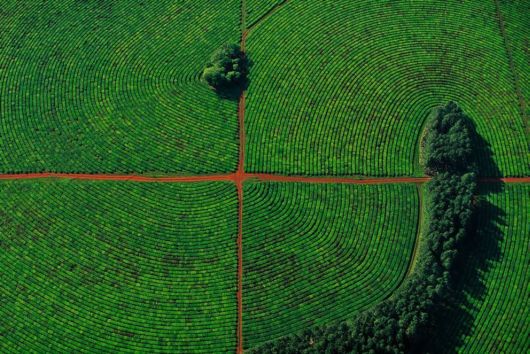|
Amitkumar
|
 |
« Reply #6 on: May 14, 2011, 02:25:05 AM » |
|
 Elephants in the Okavango Delta, Botswana. The Okavango Delta is the world's largest inland delta, flooding seasonally, and is populated by five ethnic groups of people, sharing it with hundreds of species of animals. Elephants in the Okavango Delta, Botswana. The Okavango Delta is the world's largest inland delta, flooding seasonally, and is populated by five ethnic groups of people, sharing it with hundreds of species of animals.
|
|
|
|
|
|
Amitkumar
|
 |
« Reply #7 on: May 14, 2011, 02:25:50 AM » |
|

Iraqi tank graveyard in the desert near Al Jahrah, Kuwait. This graveyard of tanks will bear witness for many years to the damage that war causes both to the environment and to human health. In 1991, during the first Gulf War, a million depleted uranium shells were fired at Iraqi forces, spreading toxic, radioactive dust for miles around. Such dust is known to have lasting effects on the environment and to cause various forms of cancer and other serious illnesses among humans. |
|
|
|
|
|
Amitkumar
|
 |
« Reply #8 on: May 14, 2011, 02:26:50 AM » |
|
 Village in the Rheris Valley, Er Rachidia region, High Atlas Mountains, Morocco. Fortified villages are frequently seen along the valley of the Rheris, as they are on most rivers of southern Morocco, inspired by the Berber architecture built to protect against invaders. Today, with the threat of raids now gone, the close clustering of dwellings, small windows, and roofs covering houses and narrow streets serve the purpose of protecting occupants from heat and dust. The flat, connecting roofs also provide a place for drying crops. Village in the Rheris Valley, Er Rachidia region, High Atlas Mountains, Morocco. Fortified villages are frequently seen along the valley of the Rheris, as they are on most rivers of southern Morocco, inspired by the Berber architecture built to protect against invaders. Today, with the threat of raids now gone, the close clustering of dwellings, small windows, and roofs covering houses and narrow streets serve the purpose of protecting occupants from heat and dust. The flat, connecting roofs also provide a place for drying crops. |
|
|
|
|
|
Amitkumar
|
 |
« Reply #9 on: May 14, 2011, 02:27:32 AM » |
|
 The Athabasca Oil Sands, Alberta, Canada. These oil deposits make up the largest reservoir of crude bitumen in the world, and as recently as 2006, produced over 1 million barrels of crude oil per day. The Athabasca Oil Sands, Alberta, Canada. These oil deposits make up the largest reservoir of crude bitumen in the world, and as recently as 2006, produced over 1 million barrels of crude oil per day. |
|
|
|
|
|
Amitkumar
|
 |
« Reply #10 on: May 14, 2011, 02:28:06 AM » |
|

Road interrupted by a sand dune, Nile Valley, Egypt. Dunes cover nearly one-third of the Sahara, and the highest, in linear form, can attain a height of almost 1,000 feet (300 m). Barchans are mobile, crescent-shaped dunes that move in the direction of the prevailing wind at rates as high as 33 feet (10 m) per year, sometimes even covering infrastructures such as this road in the Nile Valley |
|
|
|
|
|
Amitkumar
|
 |
« Reply #11 on: May 14, 2011, 02:28:45 AM » |
|
 Tea cultivation in Corrientes province, Argentina. The fertility of the red soil and the regular rains of the Corrientes region create the ideal conditions for the cultivation of tea. In an effort to protect the soil against erosion, tea is planted along curved terraces and protected from the wind by hedges. Unlike Asian and African countries, where the young sprouts are handpicked, in Argentina mechanical harvesting is the rule, done mainly with high-clearance tractors that are driven along the straight rows of tea bushes.Go to The NEXT Page for More Pictures >>> Tea cultivation in Corrientes province, Argentina. The fertility of the red soil and the regular rains of the Corrientes region create the ideal conditions for the cultivation of tea. In an effort to protect the soil against erosion, tea is planted along curved terraces and protected from the wind by hedges. Unlike Asian and African countries, where the young sprouts are handpicked, in Argentina mechanical harvesting is the rule, done mainly with high-clearance tractors that are driven along the straight rows of tea bushes.Go to The NEXT Page for More Pictures >>> |
|
|
|
|
|
 IMAGE CORNER
IMAGE CORNER Wallpapers/Cool Images
Wallpapers/Cool Images Miscellaneous
Miscellaneous Most Amazing Aerial Views
Most Amazing Aerial Views IMAGE CORNER
IMAGE CORNER Wallpapers/Cool Images
Wallpapers/Cool Images Miscellaneous
Miscellaneous Most Amazing Aerial Views
Most Amazing Aerial Views
